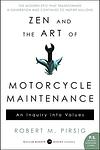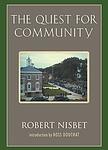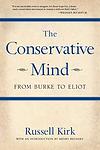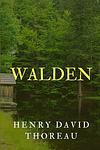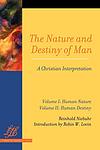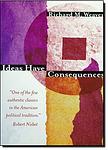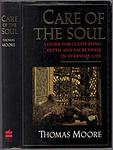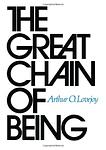The Greatest American "Philosophy" Books of All Time
Click to learn how this list is calculated.
This list represents a comprehensive and trusted collection of the greatest books. Developed through a specialized algorithm, it brings together 300 'best of' book lists to form a definitive guide to the world's most acclaimed books. For those interested in how these books are chosen, additional details can be found on the rankings page.
Genres
Philosophy is a category of books that explores fundamental questions about existence, knowledge, ethics, and reality. It encompasses a wide range of topics, from the nature of consciousness and the meaning of life to the principles of logic and the foundations of morality. Philosophy books often challenge readers to think deeply and critically about the world around them, and to consider different perspectives and arguments in order to arrive at their own conclusions.
Countries
Date Range
Reading Statistics
Click the button below to see how many of these books you've read!
Download
If you're interested in downloading this list as a CSV file for use in a spreadsheet application, you can easily do so by clicking the button below. Please note that to ensure a manageable file size and faster download, the CSV will include details for only the first 500 books.
Download-
1. The Structure of Scientific Revolutions by Thomas Kuhn
This influential book examines the history of science, focusing on the process of scientific revolutions. The author argues that scientific progress is not a linear, continuous accumulation of knowledge, but rather a series of peaceful interludes punctuated by intellectually violent revolutions. During these revolutions, known as paradigm shifts, the old scientific worldview is replaced by a new one. The book also popularized the term 'paradigm shift' and challenged the previously accepted view of science as a steadily progressive discipline.
-
2. Zen and the Art of Motorcycle Maintenance by Robert M. Pirsig
The book is a philosophical novel that explores the protagonist's journey across the United States on a motorcycle with his son, during which he delves into questions about life, philosophy, and the nature of "Quality". The narrative is interspersed with flashbacks to the protagonist's life before the journey, including his time as a university professor and his struggle with mental illness. The book aims to reconcile the dichotomy between classical and romantic understandings of the world, ultimately arguing for a holistic approach that integrates both perspectives.
-
3. The Varieties of Religious Experience by William James
This book is an exploration of the diverse range of religious experiences, from the mainstream to the mystical. The author applies a psychological and philosophical approach, examining the individual, personal experiences of spirituality rather than organized religion. The book covers topics such as conversion, saintliness, and mysticism, and argues that religious experiences, rather than religious institutions, should be the primary focus of religious study.
-
4. The Essential Writings of Ralph Waldo Emerson by Ralph Waldo Emerson
This book is a comprehensive collection of works by a renowned American philosopher and poet. It includes his most influential essays, lectures, and poetry, providing readers with a deep insight into his thoughts on nature, self-reliance, love, friendship, freedom, and the importance of intellectual independence. The book serves as a guide to the author's transcendental philosophy and his belief in individualism, nonconformity, and the inherent goodness of man and nature.
-
5. Civil Disobedience by Henry David Thoreau
The book is a seminal work on the philosophy of non-violent resistance, advocating for individual freedom and the refusal to obey unjust laws. The author argues that individuals have a duty to prioritize their conscience over the dictates of laws and that governments are inherently prone to corruption and should not command absolute allegiance from their citizens. The book has greatly influenced many nonviolent resistance movements around the world, including those led by Gandhi and Martin Luther King Jr.
-
6. A Theory of Justice by John Rawls
This book presents a seminal work in modern political philosophy, where the author proposes a model of justice that, despite being egalitarian, respects individual rights. The author's "veil of ignorance" thought experiment, which suggests designing society from an original position where no one knows their future place in society, has been particularly influential. The author argues that this would lead to a system where each individual is assured basic liberties and socio-economic inequalities are only allowed if they benefit the least advantaged members of society.
-
7. The Theory of the Leisure Class by Thorstein Veblen
This book is a socio-economic critique of American consumerism and the upper class, written in the late 19th century. The author argues that the wealthy engage in conspicuous consumption and leisure to display their wealth and maintain their social status. He introduces the concept of "pecuniary emulation," suggesting that the lower classes imitate the consumption patterns of those above them, leading to a wasteful and inefficient economy. The book is a seminal work in the field of economics, providing a satirical yet insightful look into the behavior of the affluent.
-
8. Natural Right and History by Leo Strauss
This book is an exploration of the concept of natural rights and their relation to history. The author argues that the idea of natural rights is a fundamental aspect of Western civilization and is essential for its survival, but also notes that this concept has been largely forgotten or misunderstood in the modern world. The book examines the origins and development of natural rights, from ancient Greece to the American Revolution, and critiques modern political philosophies that have moved away from this idea. It also discusses the relationship between natural rights and history, and the implications of this relationship for the future of Western civilization.
-
9. The Quest for Community by Robert Nisbet
"The Quest for Community" is a sociological analysis that examines the rise of individualism and the decline of community in Western societies. The author argues that the erosion of traditional communities and associations has led to increased state power and control, creating a society where individuals are increasingly isolated and disconnected. He emphasizes the need for a return to stronger community bonds as a means to resist this trend and to foster a healthier, more balanced society.
-
10. The Conservative Mind by Russell Kirk
"The Conservative Mind" is an exploration and analysis of conservative thought in Western political history. The author delves into the ideologies and philosophies of prominent conservative thinkers, tracing the evolution of conservative ideas from the 18th century to the mid-20th century. The book also discusses the principles that underpin conservatism, including belief in a transcendent moral order, the importance of social hierarchy, and the value of property rights. It is both a historical overview and a defense of conservative ideology.
-
11. Essays of Henry David Thoreau by Henry David Thoreau
This collection of essays presents the profound reflections of a renowned philosopher and naturalist on a variety of subjects, including nature, self-reliance, civil disobedience, and transcendentalism. The author's eloquent prose and deep insights into human existence and the natural world continue to inspire readers, offering a timeless perspective on living a meaningful, deliberate life. His views on individualism and nonconformist thought have had a significant impact on both personal and political spheres.
-
12. Nature and Destiny of Man by Reinhold Niebuhr
This work is a theological exploration of human nature and destiny, examining the intersection of Christian doctrine and contemporary thought. The author provides an in-depth analysis of human nature, arguing that an individual's capacity for self-transcendence and self-integration is a fundamental part of their nature. The book also tackles the concept of destiny, asserting that the ultimate human destiny is to realize the Kingdom of God. It delves into the paradoxes of human existence, touching on themes of sin, grace, love, and justice.
-
13. Ideas Have Consequences by Richard M. Weaver
"Ideas Have Consequences" is a philosophical work that explores the societal and cultural impacts of ideas, arguing that the decline of Western society can be traced back to the rejection of absolute truth. The author posits that this rejection has led to moral relativism, materialism, and a culture of self-centeredness. He advocates for a return to traditional values and a recognition of universal truths as a means to restore balance and purpose to society.
-
14. Cybernetics by Norbert Wiener
"Cybernetics" is a groundbreaking work that explores the complex relationship between humans and machines. The book delves into the field of cybernetics, a term coined by the author, which refers to the study of systems and processes that exist in mechanical, biological, and electronic domains. The author discusses the potential of machine learning, artificial intelligence, and computer technology, predicting their profound impact on society, economy, and human behavior. The book also highlights the ethical implications of these technological advancements.
-
15. Beyond Freedom and Dignity by B. F. Skinner
This book is a controversial exploration of human behavior that challenges the idea of free will and individual autonomy, arguing instead that human behavior is largely determined by environmental factors. The author proposes that societal issues such as overpopulation, war, and pollution can be addressed by using behavioral science to shape human actions. The book also criticizes traditional notions of punishment and reward, suggesting that these methods are ineffective in influencing behavior.
-
16. The End of History and the Last Man by Francis Fukuyama
This book presents a provocative exploration of the evolution of political systems and the role of liberal democracy in the global landscape. The author argues that the progression of history, as defined by the development of political and economic systems, has culminated in liberal democracy and free-market capitalism. This, he suggests, may represent the endpoint of mankind's ideological evolution and the 'end of history'. The book also discusses the concept of 'the last man' as a potential consequence of this endpoint, exploring the existential threat of a society of 'last men' devoid of ideological struggle and dominated by materialistic gratification.
-
17. The Closing of the American Mind by Allan Bloom
The book is a critique of the contemporary American educational system, particularly in universities. The author argues that the rise of relativism and the decline of the humanities have led to a crisis in American education, with students becoming less able to think critically and more prone to moral and intellectual confusion. The book also discusses the impact of popular culture and political movements on education, and argues for a return to a more traditional, classical education.
-
18. Philosophy and Civilization by John Dewey
"Philosophy and Civilization" is a collection of essays that explore the relationship between philosophy and the problems of human life. The author argues that philosophy should not be a mere abstract discipline, but should be connected to human concerns and society. He discusses various topics such as the role of philosophy in education, democracy, and ethics, and emphasizes the importance of practical wisdom in addressing societal issues. The book encourages readers to view philosophy as a tool for solving problems and improving civilization.
-
19. A Preface to Morals by Walter Lippmann
This book is a philosophical exploration of morality in a post-religious, modern world. The author argues that with the decline of religion, society has lost its moral compass. He suggests that instead of turning to religious dogma, individuals should seek morality through personal introspection and reason. The author also proposes that ethics should be based on the principles of tolerance, understanding, and respect for others. He advocates for a new moral code that is grounded in humanistic values and the pursuit of truth.
-
20. The School and the Child by John Dewey
"The School and the Child" is a thought-provoking work that delves into the philosophy of education. The author advocates for a progressive and child-centered approach to education, asserting that learning should be interactive, practical, and relevant to the child's life. The book argues against the traditional, rigid, and teacher-centered methods of education, emphasizing the importance of fostering creativity, critical thinking, and problem-solving skills in students. It also highlights the role of schools in shaping the social, emotional, and moral development of children.
-
21. The Meaning of Truth by William James
"The Meaning of Truth" is a philosophical exploration of the concept of truth and its relation to the human experience. The author argues that truth is not an objective, static entity, but rather a fluid and subjective concept that changes based on individual perception and experience. He challenges traditional philosophical views on truth, asserting that truth is not discovered, but created by each individual. The book also delves into the author's own philosophy of pragmatism, which emphasizes the practical application of ideas by acting on them to actually test them in human experiences.
-
22. Care of the Soul: Guide for Cultivating Depth and Sacredness by Thomas Moore
This book is a guide for personal growth that encourages readers to explore their inner selves and develop a deeper, more spiritual understanding of their own lives. The author suggests that by acknowledging the sacredness of everyday experiences and appreciating the beauty in ordinary things, individuals can cultivate a sense of peace and fulfillment. The book offers practical advice on how to nurture one's soul through love, work, and daily life, emphasizing the importance of self-care and spiritual development.
-
23. The Great Chain of Being by Arthur Lovejoy
"The Great Chain of Being" is an intellectual history that traces the philosophical idea of the "Great Chain of Being" from the ancient Greeks through the Middle Ages, Renaissance, Enlightenment, and into the 19th century. The concept posits a hierarchical structure of all matter and life, with God at the top, descending through angels, humans, animals, plants, and minerals. The book explores how this concept has influenced Western thought, particularly in relation to the natural world, social order, and God's place in the universe.
-
24. The Triumph of the Therapeutic by Philip Rieff
This book explores the shift in Western society from a community-oriented, moralistic perspective to a more individualistic, therapeutic one. The author argues that the rise of psychotherapy and the decline of traditional religious authority have led to a culture that values self-fulfillment and personal happiness over communal responsibility and moral duty. He suggests that this shift has profound implications for the future of society, as it undermines the shared values and beliefs that hold communities together.
-
25. Persons and Places by George Santayana
"Persons and Places" is an autobiographical work that explores the author's early life, education, and experiences. The writer, a philosopher, poet, and critic, delves into his upbringing in Spain and his time in Boston, shedding light on his philosophical views and how his experiences shaped them. The book provides a deep and insightful look into his personal life and the influences that molded his intellectual journey.
Reading Statistics
Click the button below to see how many of these books you've read!
Download
If you're interested in downloading this list as a CSV file for use in a spreadsheet application, you can easily do so by clicking the button below. Please note that to ensure a manageable file size and faster download, the CSV will include details for only the first 500 books.
Download
